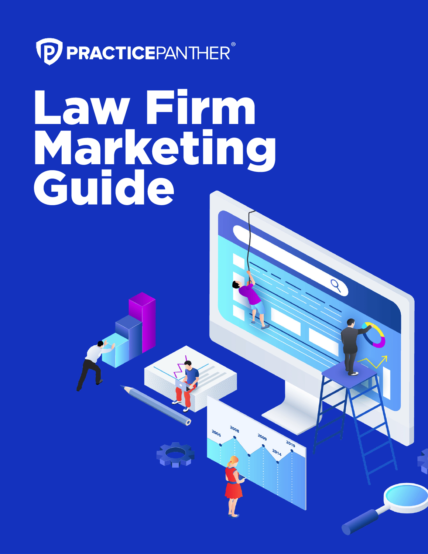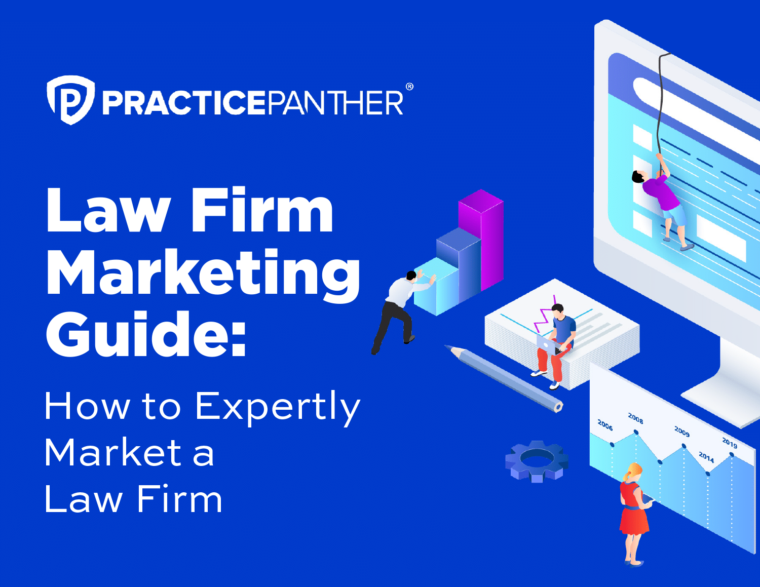Search engine optimization (SEO) is one of the most effective ways for law firms to attract quality clients. As a digital marketing strategy pillar, incorporating SEO strategies has compounded returns over time to the growth of a law firm.
This post will discuss SEO services for law firms, including the different types of SEO and best practices.

What is SEO for Law Firms?
SEO is one of the fundamental pillars of a profitable law firm’s digital marketing strategy; it describes the tactics, techniques, and process of improving a website to increase its visibility, organic search, traffic, and ranking on search engines.
When someone is confronted with an issue and needs to retain legal services, they turn to word of mouth, social media, or search engine research. Although referrals are standard and social media can be helpful, using search engines is the most common approach during the research phase of retaining legal services. An effective SEO strategy will complement the firm’s current lead generation efforts by increasing organic website traffic. Leveraging local SEO to help increase visibility in local search results is helpful for law firms as they operate within a specific geographic location.
A law firm’s website is the base of operations for all digital marketing, as different campaigns (email marketing, paid advertising, etc.) will tie back to the website. Having a functioning website that’s informative and easily navigable is essential.
Investing in SEO is beneficial to law firms as ranking higher on search engine result pages (SERP) would allow for more website visibility and attracts prospective customers organically. Law firms’ return on their SEO investment can also easily be measured through various analytic tools such as Google Analytics. The more quality content a site publishes, the more visibility the site gains and the value they provide to prospective clients.
Do SEO Services Work for Law Firms?
Service-based business models like law firms can benefit tremendously from SEO services. When seeking legal services, 96% of people responded they would use search engines during their research process, and 74% of consumers visit a law firm’s website to take action.
The hyper-competitive and saturated nature of the legal marketing industry means a firm’s success hinges on if its website can be found in a Google search. Compared to sponsored ads, where the visibility disappears when the ads aren’t paid for, investing in an SEO strategy has a long-lasting impact, thus making an asset of the website. SEO is the only channel that nets compounding returns over time.
SEO is essential for law firms as there is an educational component to retaining a law firm. For example, if someone searches for ‘what to do if I get laid off from work,’ they might be initially looking for an HR perspective. In this situation, they don’t know about potential legal remedies to their problem. Good SEO combined with educational content is the best strategy for law firms to attract clients organically.
Types of SEO and SEO Services
There are three different types of SEO: on-page SEO, off-page SEO, and technical SEO.
- On-page SEO refers to the copy on a website that helps with search engine page result rankings, such as the blog content, the title tags, images, and internal links between relevant content.
- Off-page SEO are actions taken away from a website, such as backlinks. When a relevant external website with good page authority adds a link back to another site, Google transfers some of their page authority to the other website. These efforts raise the website’s ranking in Google’s SERP.
- Technical SEO makes it easier for Google’s web bots to crawl and index your site. Optimizations could include reducing an image file size to increase the loading speed of a webpage or optimizing a website for mobile use.
Content marketing is also a cost-effective way to drive qualified traffic from a target audience to the website. Maintaining an active library of valuable legal content increases the potential to rank for more keywords and go traffic, increases natural link-building, and increases the conversion of website visitors into potential clients by creating trust.

How to Find SEO Services for Law Firms
Legal SEO services are available to law firms in several capacities, and each option can be tailored to the firm’s unique needs.
Law firm marketing consultants or agencies can support a firm by auditing the website and suggesting optimizations. Some SEO experts can execute the recommendations; others are hired simply for their expertise. For instance, an expert could recommend campaigns to increase law firm customer reviews, as reviews are a solid signal for search engines that a site is trustworthy, but it would be up to the law firm staff to identify satisfied clients.
Similar to how a law firm generates leads, a law firm SEO consultant or agency will generally have a website listing their services and contact information. Social media platforms such as LinkedIn or referrals can also be a strategy to find reliable SEO services for a law firm.
Once the firm has retained the expertise, expectations, and goals, it needs to be defined to make impactful progress in the SEO ranking. Quarterly objectives will vary based on the firm’s objectives, but below are examples of well-defined SEO goals for law firms:
- SEO Goal #1: Optimize your internal linking structure
- SEO Goal #2: Upload SEO-optimized blog post
- SEO Goal #3: Strengthen domain authority
- SEO Goal #4: Improve backlink strategy
- SEO Goal #5: Increase organic traffic
Implement Law Firm SEO Strategies
SEO remains one of the law firm marketing strategies with the highest ROI and most effective ways to attract quality clients. By optimizing a website and increasing its visibility, a firm’s search engine ranking can be the differentiating factor in who a client decides to hire.
Many actions are required to develop a robust SEO strategy as a lawyer: website optimizations, Google Business Profile optimization, analytics configuration, in-depth keyword research, legal content development, and citation building. Having clear quarterly SEO-focused goals combined with expertise to execute them is an excellent first step for law firms seeking to improve search engine ranking.





